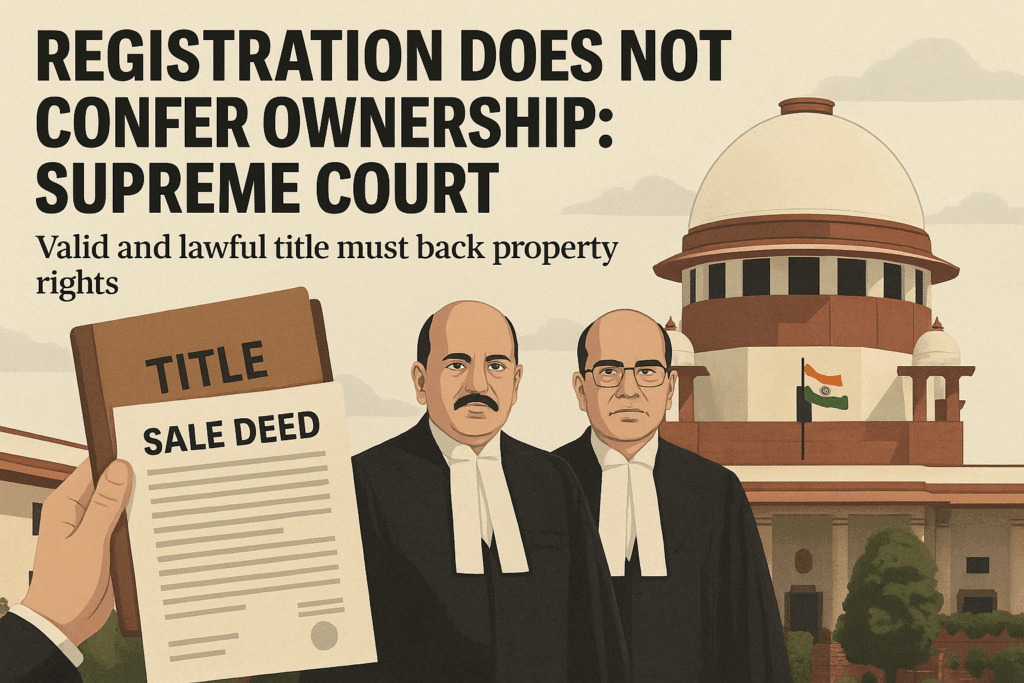Meenakshi Shukla
On May 7, 2025, the Supreme Court of India issued a landmark ruling that mere registration of a property sale deed does not, by itself, confer ownership. Ownership must be backed by a valid and lawful title, not just paperwork. This ruling came in the case Mahnoor Fatima Imran & Ors v. M/s Visweswara Infrastructure Pvt. Ltd. & Ors.
The judgment was delivered by Justice K. Vinod Chandran and Justice Sudhanshu Dhulia. The Court clarified that registration is a formal step, but not the final proof of ownership. If the title is disputed or ambiguous, registration cannot override that defect. This decision serves as a caution for buyers to check title records thoroughly. It also protects genuine owners from losing property due to procedural formalities.
The dispute revolved around 53 acres of prime land in Raidurg Panmaktha, Telangana, claimed by the appellants on the basis of registered sale deeds executed by M/s Bhavana Cooperative Housing Society. However, the Supreme Court, restoring the judgment of the Single Judge of the Telangana High Court, observed that the vendor Bhavana Society had no valid or legal title to transfer, and therefore, the sale deeds held by the appellants were prima facie void of legal effect.
The Court underscored that the foundation of ownership lies not in registration but in valid title and lawful possession. In this case, the original agreement of sale dated 19.03.1982, relied upon by the Society, was neither registered nor legally enforceable. A specific performance suit based on that agreement had also been dismissed and was never revived. A later “revalidated” version of the same agreement, differing in both content and consideration, was treated by the Court as suspicious and tainted with fraud.
Court cited Suraj Lamp & Industries v. State of Haryana (2012) 1 SCC 656, the Bench emphasised that only a registered deed of conveyance, preceded by lawful title, can create ownership in immovable property.
“Registration of a document gives notice that such a document has been executed,” the Court said, “but it does not validate the document’s legal effect if the underlying title is defective.”
Additionally, the Court noted the importance of physical possession, which had not been established by the writ petitioners. The State Authorities had consistently maintained that the land in question had been vested with the State under land reforms and urban land ceiling laws. Accordingly, the Bench refused to invoke Article 226 of Constitution of India jurisdiction to protect alleged possession when neither title nor lawful occupation was proven.
Case Name: Mahnoor Fatima Imran & Ors v. M/s Visweswara Infrastructure Pvt. Ltd & Ors.
Case Number: Special Leave Petition (C) No.1866 of 2024
Banch: Justice Sudhanshu Dhulia and Justice K. Vinod Chandran
Click here to access the order
Instagram: Click here
LinkedIn: Click here
For Collaboration and Business: info.desikaanoon@gmail.com

